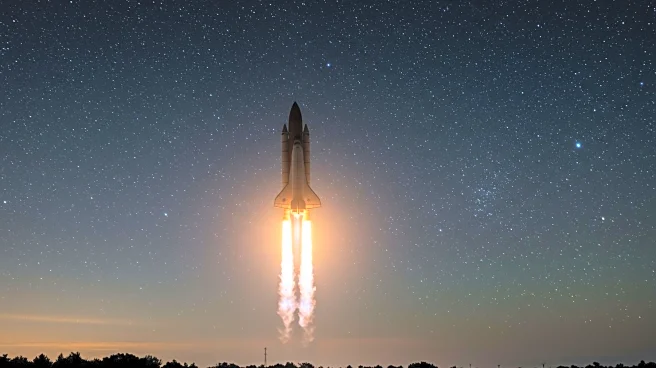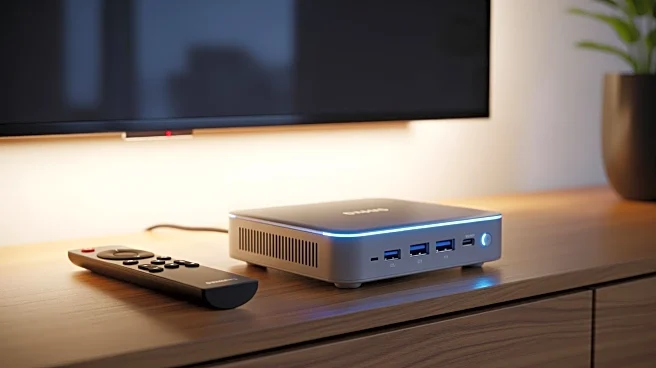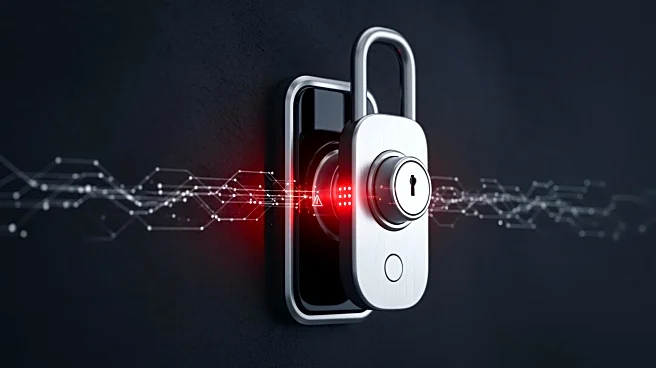What is the story about?
What's Happening?
Scientists are calling for a new global regime to address air pollution caused by the space industry. Prof Eloise Marais's team at University College London has been tracking space activities since 2020, revealing a significant increase in rocket launches and the associated emissions. In 2024 alone, 259 rocket launches burned more than 153,000 tonnes of fuel, leading to a threefold increase in emissions of climate-altering soot and carbon dioxide. The launches of mega-constellation communication satellites, such as Starlink and OneWeb, have contributed to this rise. Although the emissions from spacecraft are less than other industries, the particles remain in the upper atmosphere longer, resulting in a greater climate warming impact.
Why It's Important?
The increase in space launches and the resulting pollution pose significant challenges to Earth's atmosphere. The particles released during these launches have a much longer atmospheric lifespan, leading to a greater climate warming impact compared to other sources. This situation threatens to undo progress made by international agreements like the Montreal Protocol, which aims to repair the ozone layer. As more mega-constellations are planned for launch, the potential impacts on climate and atmospheric health could be substantial, necessitating urgent regulatory measures to mitigate these effects.
What's Next?
The scientific community is advocating for international regulations to address the pollution from space launches. As the number of mega-constellation satellites increases, the need for effective policies becomes more pressing. Researchers highlight the importance of recalibrating observational tools to ensure accurate assessments of the environmental impact. The development of new technologies and strategies to reduce emissions from space activities will be crucial in preventing further atmospheric damage.
Beyond the Headlines
The current international laws governing space activities are based on principles similar to those of the high seas, where the country that launched an object owns it, and only the laws of that country apply. This legal framework complicates efforts to clean up space debris and regulate emissions. The growing number of satellites and their re-entry into the atmosphere, releasing reactive metal particles, further underscores the need for a comprehensive approach to space pollution.
















